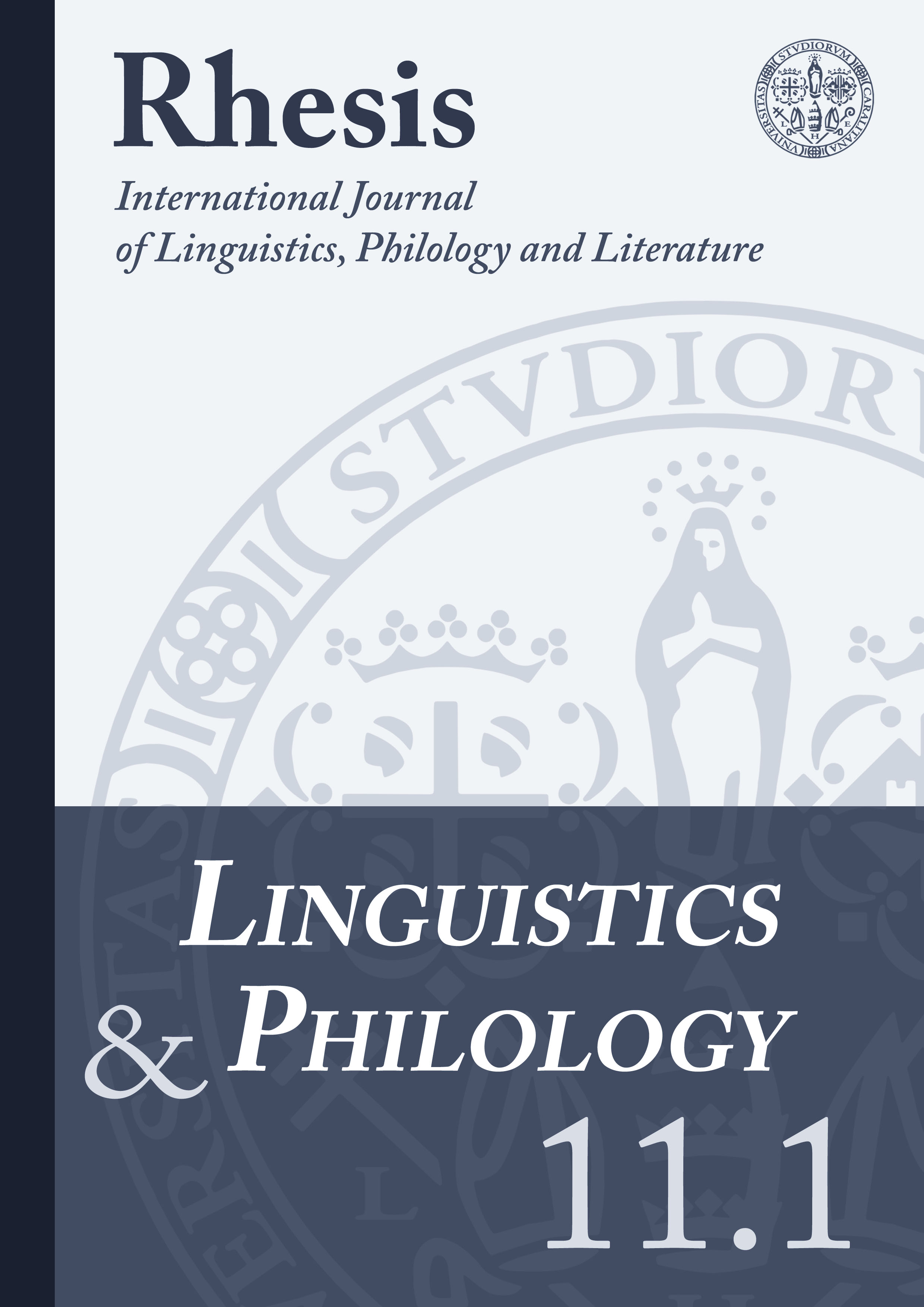Le narrazioni del conflitto greco-persiano tra panellenismo e manipolazione politica
Abstract
The Second Persian War, despite the stereotypical image that celebrated it as a Pan-Hellenic feat, deeply divided the Greek world, as evidenced by the various lists of victors and by Herodotus: few poleis, in fact, took part in the defensive alliance, and only three or four of these played a decisive role. Thus, the victory generated, more than real unity, an ideological vision of unity: the narratives of Pan-Hellenic concord against the enemy, inserted within an ideal line of confrontation between Greeks and barbarians, which at least dated back to the Trojan War, spread the idea that the affirmation of community ties could also pass through the celebration of a common enterprise, pushing all Greeks, including those who had not taken part in the war, to associate their names with those of the victors. This work then proposes to reconsider a series of texts, from Simonides’ elegy on Plataea to the self-celebrating epigrams mentioned in Plutarch’s De Herodoti malignitate, which shed light on the ways in which some Greek communities presented their efforts during the conflict, in order to claim their membership in the Greeks’ ideal community or the honour of having done more and better than others for the common cause.
Downloads
References
Asheri, David (2006), Erodoto. Le Storie. Libro IX. La battaglia di Platea. Commento di D. Asheri, aggiornamenti di P. Vannicelli, testo critico di A. Corcella, traduzione di A. Fraschetti, Milano, Mondadori, Fondazione Lorenzo Valla.
Biagetti, Claudio (2018), ‘Fra Siracusa e le Termopili: note di commento a P.Oxy. VI 857’, in Davoli, Paola; Pellé, Natascia (eds.), Πολυµάθεια. Studi Classici offerti a Mario Capasso, LecceBrescia, Pensa, 139-160.
Boedeker, Deborah (1995), ‘Simonides on Plataea: Narrative Elegy, Mythodic History’, Zeitschrift für Papyrologie und Epigraphik 107, 217-229.
Boedeker, Deborah (1996), ‘Heroic Historiography: Simonides and Herodotus on Plataea’, in Boedeker, Deborah; Sider, David (eds.), The New Simonides [Special issue], Arethusa 29 (2), 223-242.
Bravi, Luigi (2009), ‘Tre corone: Simonide Ep. X; Erodoto 8, 59 e 123 s.’, Quaderni Urbinati di Cultura Classica n.s. 92 (2), 73-83.
Brown, Christopher G. (1991), ‘The Prayers of the Corinthian Women (Simonides, Ep. 14 Page, FGE)’, Greek, Roman and Byzantine Studies 32, 5-14.
Cagnazzi, Silvana; Ferrandini Troisi, Franca (2007), ‘La tomba dei Corinzi a Salamina’, Rivista storica dell’Antichità 37, 61-75.
Cecchet, Lucia (2017), ‘Plutarco. De Herodoti malignitate. Introduzione, traduzione e note al testo’, in Lelli, Emanuele; Pisani, Giulio (eds.), Plutarco. Tutti i Moralia, Milano, Bompiani, 1634-1673.
Corcella, Aldo (2003), ‘Echi di documenti sulle guerre persiane’, in Biraschi, Anna Maria; Desideri, Paolo; Roda, Sergio; Zecchini, Giuseppe (eds.), L’uso dei documenti nella storiografia antica, Napoli, Edizioni Scientifiche Italiane, 127-149.
Donini, Guido (1982), Tucidide. Le Storie, 1, Torino, UTET.
Flower, Michael A. (2000), ‘From Simonides to Isocrates: The Fifth-Century Origins of FourthCentury Panhellenism’, Classical Antiquity 19 (1), 65-101.
Gehrke, Hans-Joachim (2010), ‘Greek Representations of the Past’, in Foxhall, Lin; Gehrke, HansJoachim; Luraghi, Nino (eds.), Intentional History: Spinning Time in Ancient Greece, Stuttgart, Franz Steiner Verlag, 15-33.
Gentili, Bruno; Prato, Carlo (20022) [1985], Poetarum elegiacorum testimonia et fragmenta, 2, Lipsiae, B. G. Teubneri.
Gomme, Arnold. W. (1945), A Historical Commentary on Thucydides, 1, Oxford, Clarendon Press.
Green, Peter (2006), Diodorus Siculus, Books 11-12.37.1. Greek History 480-431 B.C. – The Alternative Version, Austin, University of Texas Press.
Hall, Edith (1989), Inventing the Barbarian: Greek Self-Definition Through Tragedy, Oxford, Clarendon Press.
Hansen, Mogens Herman; Nielsen, Thomas H. (2004), An Inventory of Archaic and Classical Poleis, Oxford, Oxford University Press.
Hornblower, Simon (2003) [1991], A Commentary on Thucydides, 1, Oxford, Clarendon Press.
Hornblower, Simon (2011) [1983], The Greek World, London-New York, Routledge.
Jacquemin, Anne (2001), ‘Delphes au Ve siècle ou un panhellénisme difficile à concrétiser’, Pallas 57, 93-110.
Lulli, Laura (2011), Narrare in distici. L’elegia greca arcaica e classica di argomento storico-mitico, Roma, Quasar.
Lynn Budin, Stephanie (2008), ‘Simonides’ Corinthian Epigram’, Classical Philology 103 (4), 334-353.
Manfredini, Mario (1991), ‘Gli epigrammi del De Herodoti malignitate’, Annali della Scuola Normale Superiore di Pisa. Classe di Lettere e Filosofia s. III 21 (2), 559-590.
Meiggs, Russell; Lewis, David (1969), A Selection of Greek Historical Inscriptions, 1, Oxford, Clarendon Press.
Mitchell, Lynette G. (2007), Panhellenism and the Barbarian in Archaic and Classical Greece, Swansea, The Classical Press of Wales.
Page, Denys L. (1981), Further Greek Epigrams, Cambridge, Cambridge University Press.
Parsons, Peter J. (1992), ‘P.Oxy 3965. Simonides, Elegies’, in Handley, Eric W.; Ioannidou, H. Grace; Parsons, Peter J.; Whitehorne, John Edwin G. (eds.), The Oxyrhynchus Papyri, 59, London, Charlesworth & Co., 4-50.
Rutherford, Ian (1996), ‘The New Simonides: Towards a Commentary’, in Boedeker, Deborah; Sider, David (eds.), The New Simonides. Contexts of Praise and Desire, Oxford, Oxford University Press, 169-173.
Vannicelli, Pietro; Corcella, Aldo (2017), Erodoto. Le Storie. Libro VII. Serse e Leonida. Traduzione di G. Nenci, Milano, Mondadori, Fondazione Lorenzo Valla.
West, Martin L. (1992) [1972], Iambi et Elegi Graeci, 2, Oxonii, Typographeo Clarendoniano.
West, Martin L. (1993), ‘Simonides Redivivus’, Zeitschrift für Papyrologie und Epigraphik 98, 1-14.



